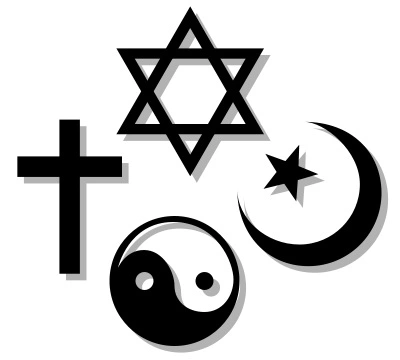evolution and religion
Publié le 17/01/2022
Extrait du document

The ways in which religion
relates to evolution. Evolution is the idea that
life, and sometimes human culture, has developed
from simple to more complex forms.
Evolution is an old idea. Some ancient philosophers,
such as the Roman poet Lucretius
(c. 95–55 B.C.E.), had already written about it. But
evolution came into its own in Europe and North
America during the 19th century. Two kinds of
evolution are especially important with regard to
religion. One is the theory that life on Earth has
evolved over a period of hundreds of millions of
years. Today virtually all reputable scientists—and
a good many religious people—accept this theory.
The second is the question of whether religion
itself has evolved.
The theory of the evolution of life is inseparable
from the name Charles Darwin (1809–82). In
1859 Darwin published On the Origin of Species.
It made the theory of evolution unavoidable. Darwin
did not actually propose the idea that life had
evolved. Others, such as Jean Baptiste Lamarck
(1744–1829), had already done that. Nor did Darwin
argue that life evolved from nonliving matter.
That idea only came later. What Darwin did was
show how evolution could work. He proposed a
theory of "natural selection." In his view, forms
of life change constantly, if only in minor ways.
Only the best forms survive. The word "best" here
means best able to compete for resources and
reproduce.
By the end of the 19th century the theory of
evolution had been widely accepted by theologians
as well as by scientists.
But in the 20th century a backlash against evolution
arose among some American Protestants.
This was fundamentalism (see EVANGELICAL CHRISTIANITY,
and FUNDAMENTALISM, CHRISTIAN). Besides
rejecting evolution, fundamentalists opposed historical
methods of studying the BIBLE and a movement
in Christianity that emphasized social reform.
In 1925 fundamentalists and scientists squared off
in the famous "monkey trial" of John Scopes in
Dayton, Tennessee. He was accused of violating
the law by teaching evolution in a biology class. In
the middle 1970s fundamentalists began demanding
that public schools in the United States teach
"creation science" in addition to evolution. Almost
all reputable scientists reject "creation science" as
bogus.
Unlike the fundamentalists, many have
accepted evolution without rejecting traditional
religion. Indeed, Darwin himself remained a committed
Christian all his life. Some have asserted
that science is about facts, while religion is concerned
with values. This was the position of the
German theologian Albrecht Ritschl (1822–89).
Others have maintained that biological evolution
explains material aspects of human life, but not
its mental or spiritual side. This was the position
of A. R. Wallace, an associate of Darwin's, and of
Rudolf OTTO, a philosopher of religion. Still others,
such as the Catholic priest Pierre Teilhard de
Chardin (1881–1955), have taught that the human
spirit evolves.
During the 19th and early 20th centuries,
some anthropologists, especially in Great Britain,
debated whether religion itself had evolved. Well
before Darwin, the Scottish philosopher David
Hume (1711–76) had suggested that all religion had
grown out of POLYTHEISM, the WORSHIP of many gods.
In the 19th and early 20th centuries some thinkers
claimed that religion began with other forms:
the belief in GHOSTS (Herbert Spencer), a "disease
of language" (Friedrich Max Müller), the belief
in spirits (E. B. Tylor), a powerful, nonpersonal,
electric-like force called mana (R. R. Marett). The
most widely known fi gure may have been James
George FRAZER. He divided human history into
three stages: magic, religion, and science.
After World War I anthropologists rejected all
of these ideas. More important, they rejected the
attempt to identify a single series of steps through
which religion had evolved into the forms we know
today. Most English-speaking thinkers have remained
suspicious of the topic of religion's evolution.
Liens utiles
- Relationship between religion, spirituality, and young Lebanese university students’ well-being.
- 2001: A Space Odyssey 2001: A Space Odyssey, science-fiction motion picture about extraterrestrial life, human evolution, and technology, directed by Stanley Kubrick and released in 1968.
- John Coltrane John Coltrane (1926-1967), American saxophone player, composer, and combo (small group) leader, a major figure in the evolution of the jazz styles known as bebop and free jazz.
- dreams and religion
- drugs and religion































